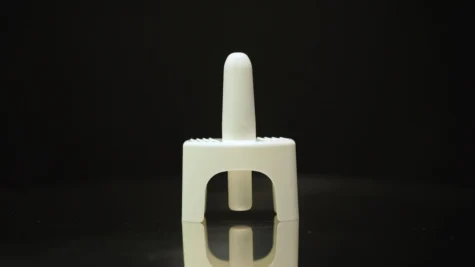Making the decision to stop drinking alcohol can be one of the most powerful steps toward improving your health, relationships, and overall well-being. Whether you’re struggling with alcohol dependence or simply recognizing the need to make a change, the journey toward sobriety is a personal and transformative one. At Southern Sky Recovery, we understand that the process of quitting alcohol is not always straightforward, but with the right steps and support, it’s entirely achievable. In this blog, we’ll explore key steps you can take to stop drinking alcohol, rebuild your life, and achieve lasting sobriety.
Acknowledge the Problem and Commit to Change
The first and most crucial step to stopping drinking alcohol is acknowledging that it’s become a problem in your life. This may sound simple, but it often requires deep introspection and honesty. Alcohol abuse can manifest in many ways—whether it’s impacting your health, relationships, job performance, or mental well-being. Recognizing these consequences and committing to change is essential for initiating the recovery process.
It can be difficult to admit that you need help, especially if you’ve been drinking for years or if alcohol has become a part of your identity. However, acknowledging the issue is an empowering step that will allow you to take control of your life again. If you’re unsure about whether alcohol has become a problem, ask yourself if drinking is affecting areas of your life negatively, and if you’ve tried to cut back or quit without success.
Seek Support and Guidance
Quitting alcohol is not something you have to do alone. Seeking support from others is one of the most important steps in the process. Whether it’s a supportive friend, family member, or a professional therapist, connecting with someone who understands your journey can provide you with the emotional and psychological support you need to succeed.
Support groups like Alcoholics Anonymous (AA) can also play a pivotal role in your recovery. These groups offer a safe space to share your experiences, learn from others, and gain strength through community. Many people find that being part of a group of individuals who share similar struggles helps reduce feelings of isolation and provides a sense of accountability.
Professional treatment programs, like those offered at Southern Sky Recovery, can also provide a structured, therapeutic environment for those seeking to quit alcohol. Inpatient or outpatient rehabilitation centers often offer counseling, medical support, and therapy sessions to address the psychological aspects of addiction, which can be essential in maintaining long-term sobriety.
Set Clear, Realistic Goals
One of the most important things you can do when trying to stop drinking is to set clear and realistic goals. Sobriety doesn’t happen overnight, and you’ll want to create a roadmap for success that fits your personal needs. This could mean starting with small, manageable goals, like reducing your alcohol intake over time or setting a timeline for complete abstinence.
For example, you might decide to go alcohol-free for a month and see how you feel. If that goal is successful, you can set a new, longer-term goal for yourself. Tracking your progress, no matter how small, helps reinforce your commitment to quitting alcohol and provides a sense of accomplishment as you continue on your journey.
It’s also important to be patient with yourself. Recovery is not linear, and setbacks may occur. The key is to stay committed to your goals and not get discouraged. Recognize that it’s normal to face challenges, but with persistence and determination, you will make progress.
Identify and Avoid Triggers
One of the most common challenges in quitting alcohol is identifying and avoiding the triggers that prompt the urge to drink. Triggers can be internal (such as stress, anxiety, or depression) or external (such as social events, certain environments, or people). By becoming aware of what causes you to reach for a drink, you can take proactive steps to avoid these situations or deal with them in a healthier way.
For example, if social gatherings with alcohol make you want to drink, you might choose to avoid these events for a period of time or bring a sober friend for support. If stress is a trigger, practicing relaxation techniques such as meditation, yoga, or deep breathing can help you manage the urge to drink.
Developing healthy coping mechanisms for dealing with these triggers is key to long-term success. Rather than using alcohol to cope with emotions or stress, try adopting new strategies like exercising, journaling, or talking to a therapist to help you navigate difficult situations without turning to alcohol.
Create a Healthy Routine and Stay Busy
When you stop drinking, you may find yourself with extra time on your hands. One of the most effective ways to avoid drinking is to fill that time with positive, healthy activities. Creating a daily routine that includes exercise, work, hobbies, and socializing can help you stay focused on your recovery.
Exercise is particularly beneficial during the recovery process, as it helps reduce stress, boost mood, and improve overall physical health. Whether it’s going for a walk, taking up a sport, or joining a fitness class, incorporating regular exercise into your routine can help you stay active and motivated. Moreover, replacing drinking with other rewarding activities will help reinforce the habit of sobriety.
Additionally, engaging in hobbies, learning new skills, or spending quality time with loved ones can help keep your mind occupied and foster a sense of fulfillment. The goal is to replace old habits associated with alcohol with new, healthier activities that contribute to your well-being.
Take Care of Your Physical and Mental Health
Taking care of your overall health is a crucial part of the recovery process. Alcohol can have long-term effects on both your physical and mental health, so healing requires a holistic approach to wellness.
First, focus on nourishing your body with healthy, balanced meals. Drinking water, eating fruits and vegetables, and getting enough sleep are all essential for your body to recover from the damage alcohol may have caused. Additionally, engaging in relaxation techniques like deep breathing exercises or mindfulness meditation can help manage stress and promote emotional well-being.
Mental health support is also key in the recovery process. Therapy, counseling, and mental health treatment are important for addressing the underlying causes of alcohol dependence and developing a positive mindset. Many people find that therapy helps them build coping skills for managing triggers, stress, and emotional challenges without relying on alcohol.
Celebrate Your Success and Stay Committed
Recovery is a long-term process, and it’s important to celebrate every step forward, no matter how small. Acknowledging your successes—whether it’s a day, a week, or a month of sobriety—reinforces your commitment and provides a sense of accomplishment.
Remember, recovery is a lifelong journey. Maintaining sobriety involves continual effort, self-care, and support. It’s normal to face challenges along the way, but with the right steps, you can build a fulfilling, alcohol-free life. Surround yourself with people who support your recovery, keep setting goals, and always remember that you’re stronger than your cravings.
Southern Sky Recovery Can Help With Alcohol Addiction Treatment Services
Quitting alcohol is a significant life decision, and it’s one that will take time, effort, and support. By acknowledging the problem, setting realistic goals, identifying triggers, and creating a healthy routine, you can successfully stop drinking alcohol and embrace a better, more fulfilling life. At Southern Sky Recovery, we are committed to helping individuals along their recovery journey, offering compassionate support and professional treatment to ensure lasting sobriety. If you or someone you know is ready to stop drinking, take the first step today and reach out for the help and guidance you deserve.



